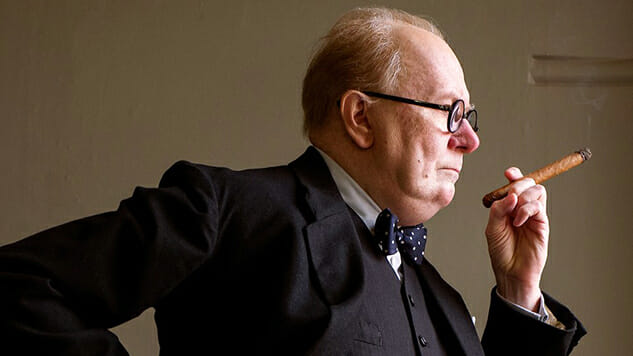Darkest Hour
Photo: Jack English/Focus Features
Darkest Hour is a film of flummoxed old white men hollering at each other, a perfect foil to (and double-bill alongside) Christopher Nolan’s Dunkirk, both because the two take place at about the same time during the early years of World War II—as Hitler’s world domination began to take shape and an invasion of the UK imminent—and because they are entirely different experiences: Dunkirk is all action, while Joe Wright’s film is all words. And with volume, those words gain weight—sound, in all of its ephemera and exigencies, is just as important to Darkest Hour as it is to Nolan’s visceral spectacle, except Wright’s are the sounds of bureaucracy and urbanity building to a fever pitch, and Nolan’s are the sounds of bodies in motion through time. Rarely has the uncomfortable, marrow-deep scritch of pen to paper bore such portent, except for maybe in Wright’s other period drama, Atonement.
-

-

-

-

-

-

-

-

-

-

-

-

-

-

-

-

-

-

-

-

-

-

-

-

-

-

-

-

-

-

-

-

-

-

-

-

-

-

-

-








































